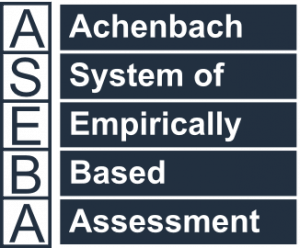Technical Support for ASEBA® Software Products
May I make copies of the ASEBA forms?
2 min read
No. The CBCL, YSR, TRF, C-TRF, DOF, SCICA, TOF, ASR, ABCL, OASR, and OABCL, their scoring profiles, templates, computer software, manuals, and related books are all copyrighted. The copyrights provide legal protection against unauthorized reproduction and alteration of these materials. Violation of the copyrights is punishable by fines up to $100,000, plus civil penalties.
Besides being a violation of the copyright law, altered versions of the rating forms are apt to produce invalid data, because they would differ from the forms with which the normative, validity, and reliability data were obtained. Data obtained with altered forms would also lack comparability with the many studies that have used the standard forms.
Although we are occasionally asked for permission to reprint or alter our forms, we have learned that the disadvantages greatly outweigh the advantages for all concerned. Even when the alterations involve only changes of typestyle or format, these may have unanticipated effects on the respondents. Furthermore, changes that are inadvertent or seem insignificant can have unfortunate effects. As an example, in the Ontario Child Health Study of several thousand children, the definition of the 0 score for CBCL problem items was changed from Not true to Never or not true. This slight change was not noticed by the researchers until after the data had been collected and analyzed, yielding considerably higher problem scores for children in Ontario than in the U.S. When the change in wording was noticed, an experimental comparison was made between responses by Ontario parents receiving the original CBCL wording and parents receiving the altered wording that included the word never. This comparison showed that inclusion of the word never produced significantly fewer scores of 0 and significantly higher scores overall (Woodward et al., 1989, J. Child Psychology & Psychiatry, 30, 919-924).
Another problem with copied or altered forms is that others may use or copy them without realizing that they are not the standard forms and that they are violating copyright law, as well as obtaining invalid data.
Because we believe that the strengths of standardized procedures are lost when they are destandardized, we do not generally grant permission to copy or alter our forms. If you feel that you have an exceptionally compelling reason for requesting permission to reproduce or alter our forms, please complete an application for a license.
